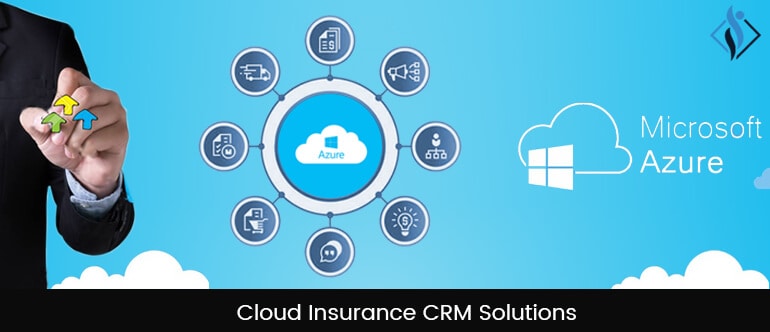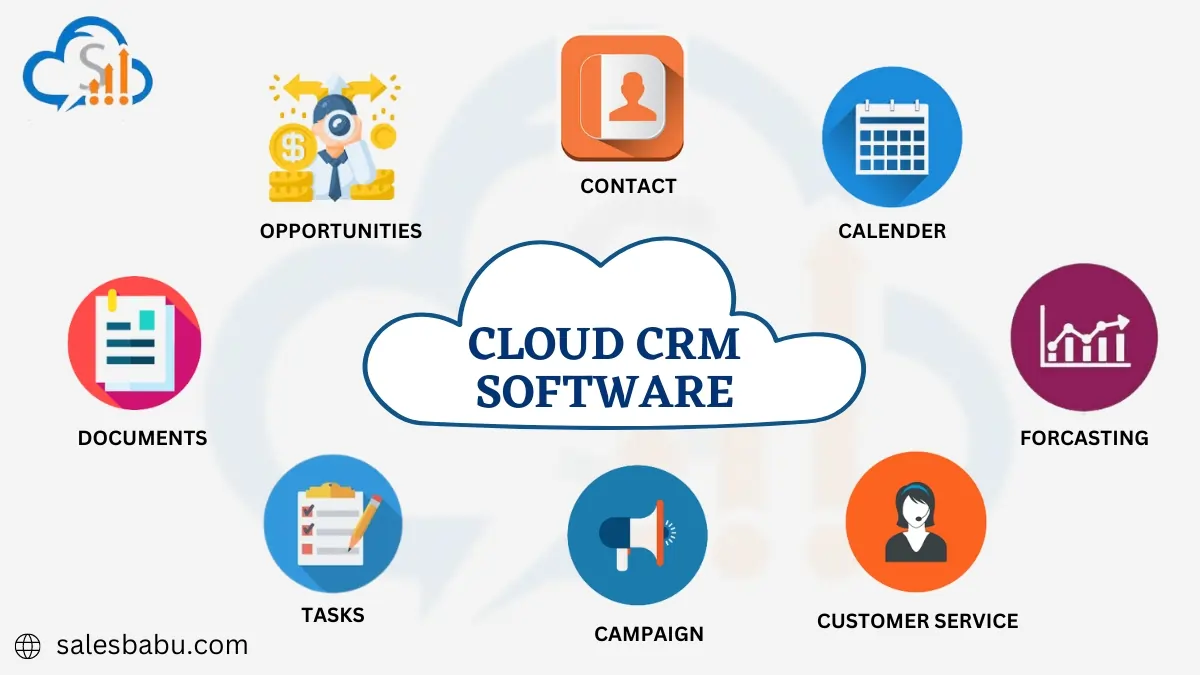Exploring Cloud-based CRM Solutions for Insurance Businesses
Diving into the realm of cloud-based CRM solutions for insurance businesses, this introduction sets the stage for a comprehensive exploration of the topic. From understanding the concept to examining the benefits and practical applications, this discussion aims to shed light on the significance of cloud-based CRM in the insurance industry.
As we delve deeper into the features, functionalities, implementation, and success stories of cloud-based CRM solutions, a clearer picture emerges of how these tools are revolutionizing the way insurance companies operate in today's digital landscape.
Overview of Cloud-based CRM Solutions for Insurance Businesses

Cloud-based CRM solutions for insurance businesses refer to customer relationship management systems that are hosted on remote servers accessible through the internet. These solutions help insurance companies manage interactions with current and potential customers, streamline processes, and improve overall efficiency.
Key Benefits of Cloud-based CRM Solutions in the Insurance Industry
- Increased Accessibility: Cloud-based CRM solutions allow insurance agents to access customer data and information from anywhere, at any time, using any device with an internet connection.
- Cost-effective: These solutions eliminate the need for costly hardware installations and maintenance, reducing overall IT expenses for insurance companies.
- Enhanced Security: Cloud-based CRM systems offer advanced security features to protect sensitive customer data, ensuring compliance with industry regulations.
- Scalability: Insurance businesses can easily scale their CRM system based on their needs, whether it's adding more users or integrating new functionalities.
Streamlining Processes for Insurance Companies with Cloud-based CRM Solutions
Cloud-based CRM solutions streamline processes for insurance companies by centralizing customer data, automating repetitive tasks, and providing real-time insights into customer interactions. This leads to improved customer service, increased productivity, and better decision-making.
Comparison of Cloud-based CRM Solutions with Traditional CRM Systems in the Insurance Sector
- Flexibility: Cloud-based CRM solutions offer greater flexibility in terms of customization and integration with other software applications compared to traditional CRM systems.
- Cost-effectiveness: Traditional CRM systems often require significant upfront investments in hardware and software, while cloud-based solutions typically operate on a subscription-based model with lower initial costs.
- Scalability: Cloud-based CRM solutions are more scalable and can adapt to the changing needs of insurance businesses more easily than traditional systems.
- Accessibility: Traditional CRM systems may require employees to be on-site to access customer data, whereas cloud-based solutions provide remote access from anywhere with an internet connection.
Features and Functionalities of Cloud-based CRM Solutions
Cloud-based CRM solutions for insurance businesses offer a range of essential features and functionalities designed to streamline operations, enhance customer relationships, and improve overall efficiency.
Essential Features for Insurance Businesses
- Lead Management: Allows tracking and managing leads through the sales pipeline.
- Policy Management: Helps in managing policies, renewals, and claims efficiently.
- Customer Communication: Facilitates personalized communication with clients via various channels.
- Analytics and Reporting: Provides insights through data analytics and generates reports for performance evaluation.
- Integration Capabilities: Easily integrates with other tools and systems for seamless data flow.
Automation in Cloud-based CRM Solutions
Automation plays a crucial role in cloud-based CRM solutions for insurance companies by reducing manual tasks, increasing efficiency, and improving accuracy. Automated workflows can streamline lead nurturing, policy renewals, and customer communication, ensuring timely follow-ups and personalized interactions.
Customization Options in Cloud-based CRM Solutions
Cloud-based CRM solutions tailored for the insurance sector offer extensive customization options to meet specific business requirements. Insurance companies can customize workflows, data fields, and reports according to their unique processes and needs. This flexibility ensures that the CRM system aligns perfectly with the organization's workflow, enhancing productivity and effectiveness.
Security Measures in Cloud-based CRM Systems
Security is a top priority in cloud-based CRM systems for insurance businesses to protect sensitive data from cyber threats and unauthorized access.
These systems employ robust encryption techniques, secure access controls, and regular data backups to ensure the safety and confidentiality of insurance data. Compliance with industry regulations and standards further strengthens the security posture of cloud-based CRM solutions, providing peace of mind to insurance companies and their clients.
Implementation and Integration of Cloud-based CRM Solutions

Implementing a cloud-based CRM solution for an insurance business requires a strategic approach to ensure a smooth transition and successful integration. Here is a step-by-step guide on how to implement and integrate cloud-based CRM solutions for insurance companies:
Step-by-Step Guide for Implementation
- Assess Current Processes: Evaluate existing workflows and processes within the insurance company to identify areas that can benefit from CRM integration.
- Choose the Right CRM Solution: Select a cloud-based CRM system that aligns with the specific needs and goals of the insurance business.
- Customize and Configure: Customize the CRM solution to match the unique requirements of the insurance company and configure it to optimize performance.
- Data Migration: Transfer existing data from legacy systems to the cloud-based CRM platform carefully to ensure data integrity and security.
- Training and Adoption: Provide comprehensive training to employees on how to use the new CRM system effectively to maximize its benefits.
- Continuous Monitoring and Improvement: Regularly monitor the CRM system's performance, gather feedback, and make necessary adjustments to improve efficiency.
Challenges in Integration
- Data Security Concerns: Insurance companies deal with sensitive customer data, so ensuring data security and compliance with regulations is crucial during integration.
- Legacy System Compatibility: Integrating cloud-based CRM solutions with existing legacy systems can be challenging due to compatibility issues and data migration complexities.
- User Resistance: Employees may resist the change and adoption of a new CRM system, affecting the integration process and overall efficiency.
Best Practices for Smooth Transition
- Engage Stakeholders: Involve key stakeholders from different departments in the implementation process to gain their support and ensure alignment with business objectives.
- Phased Approach: Implement the CRM solution in phases to manage risks, address issues promptly, and allow for smoother integration across the organization.
- Data Quality Assurance: Regularly audit and clean up data to maintain data accuracy and integrity within the CRM system for improved decision-making.
Integration with Existing Software
- API Integration: Use application programming interfaces (APIs) to seamlessly connect cloud-based CRM solutions with other software applications used by insurance companies, such as accounting software or document management systems.
- Custom Development: Develop custom integrations or middleware solutions to bridge the gap between the CRM system and existing software for a more cohesive workflow.
Case Studies and Success Stories of Insurance Businesses Using Cloud-based CRM Solutions

In today's competitive insurance industry, many companies have turned to cloud-based CRM solutions to streamline their operations and improve customer relationships. Let's take a look at some real-life examples of insurance businesses that have successfully leveraged cloud-based CRM systems to achieve significant outcomes.
Increased Customer Retention and Satisfaction
- Company A, a mid-sized insurance firm, implemented a cloud-based CRM solution to centralize customer data and automate communication processes. As a result, they saw a 20% increase in customer retention rates and a 15% improvement in customer satisfaction scores.
- By utilizing the data analytics capabilities of the CRM system, Company B, a large insurance corporation, was able to personalize their interactions with customers and provide targeted offerings. This led to a 25% reduction in customer churn and a 30% increase in cross-selling opportunities.
Efficient Claims Processing and Management
- Company C, a regional insurance provider, integrated a cloud-based CRM solution with their claims processing system to streamline workflows and improve efficiency. This resulted in a 40% reduction in claims processing time and a 50% increase in claims accuracy.
- Through the automation features of the CRM system, Company D, a niche insurance agency, was able to optimize their claims management processes and reduce manual errors. This led to a 30% faster claims approval time and a 20% decrease in claims-related costs.
Scalability and Adaptability for Growth
- Company E, a start-up insurance brokerage, chose a cloud-based CRM solution that offered scalability and flexibility to accommodate their growing business needs. As they expanded their client base, the CRM system seamlessly adapted to the increased workload without any disruptions.
- Company F, an established insurance conglomerate, adopted a cloud-based CRM platform that allowed for easy integration with other business applications. This integration enabled them to create a unified view of customer data across various departments, leading to improved collaboration and decision-making.
Final Review
In conclusion, the journey through cloud-based CRM solutions for insurance businesses unveils a world of possibilities and efficiencies waiting to be harnessed. From enhancing customer relationships to optimizing internal processes, the adoption of cloud-based CRM systems marks a pivotal shift towards innovation and growth in the insurance sector.
FAQ Compilation
What are the key benefits of using cloud-based CRM solutions in the insurance industry?
Cloud-based CRM solutions offer enhanced scalability, flexibility, and accessibility, allowing insurance companies to efficiently manage customer data, streamline processes, and improve overall productivity.
How can insurance companies ensure a smooth transition to a cloud-based CRM solution?
Best practices include thorough training for employees, data migration planning, and ongoing support from the CRM provider to address any integration challenges that may arise during the transition.